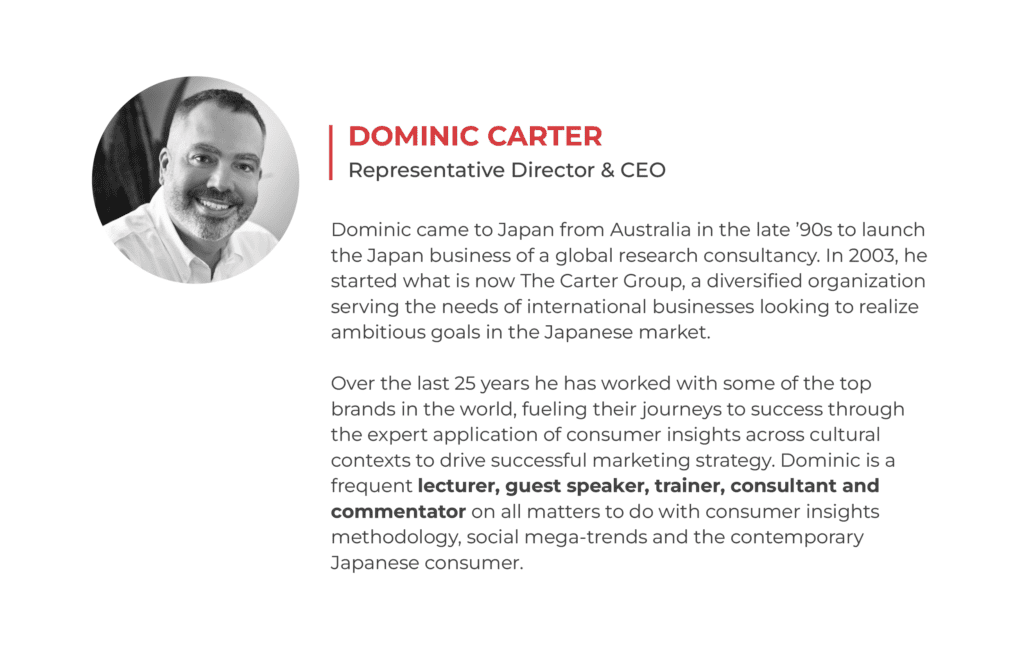The United Nations’ Sustainable Development Goals (SDGs) are a set of 17 goals and 169 targets that countries are encouraged to use as a guide for sustainable development. All United Nations Member States adopted the goals in 2015, and each country is responsible for its own implementation.
The Japanese government has been working to increase awareness of the SDGs and to promote their implementation. A recent survey conducted by CarterJMRN shows that awareness of the SDGs is relatively high in Japan, with 91% of respondents saying they have heard of the goals.
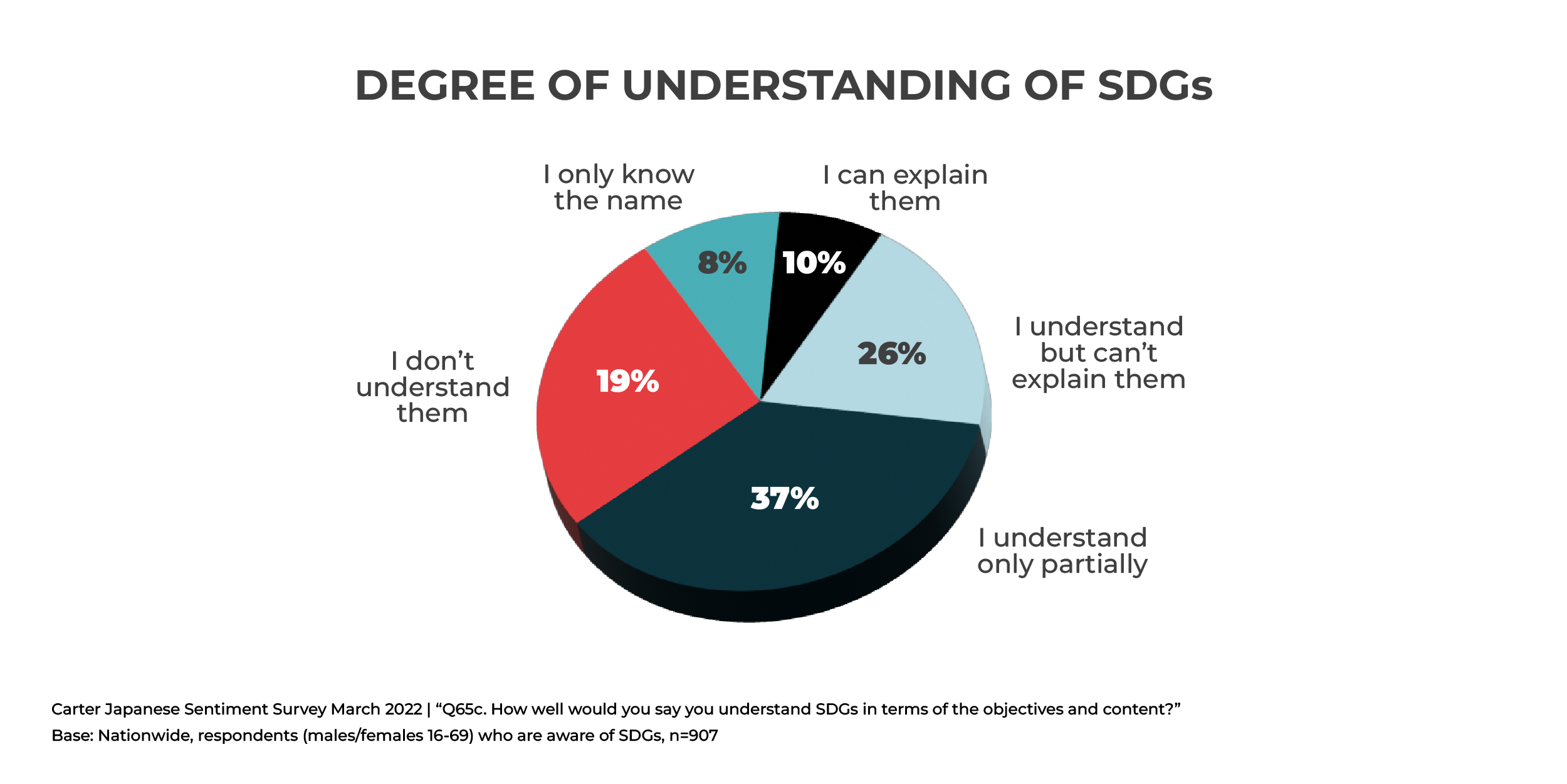
Japanese people still have some way to go in their understanding of SDGs
Around 1 in 3 people feel they understand the goals at least ‘well enough’, but profound understanding – a level where people would understand them well enough to explain to someone else is quite low at 1 in 10.
There remain 2 in 3 people yet to gain a degree of confidence in their understanding of the goals.
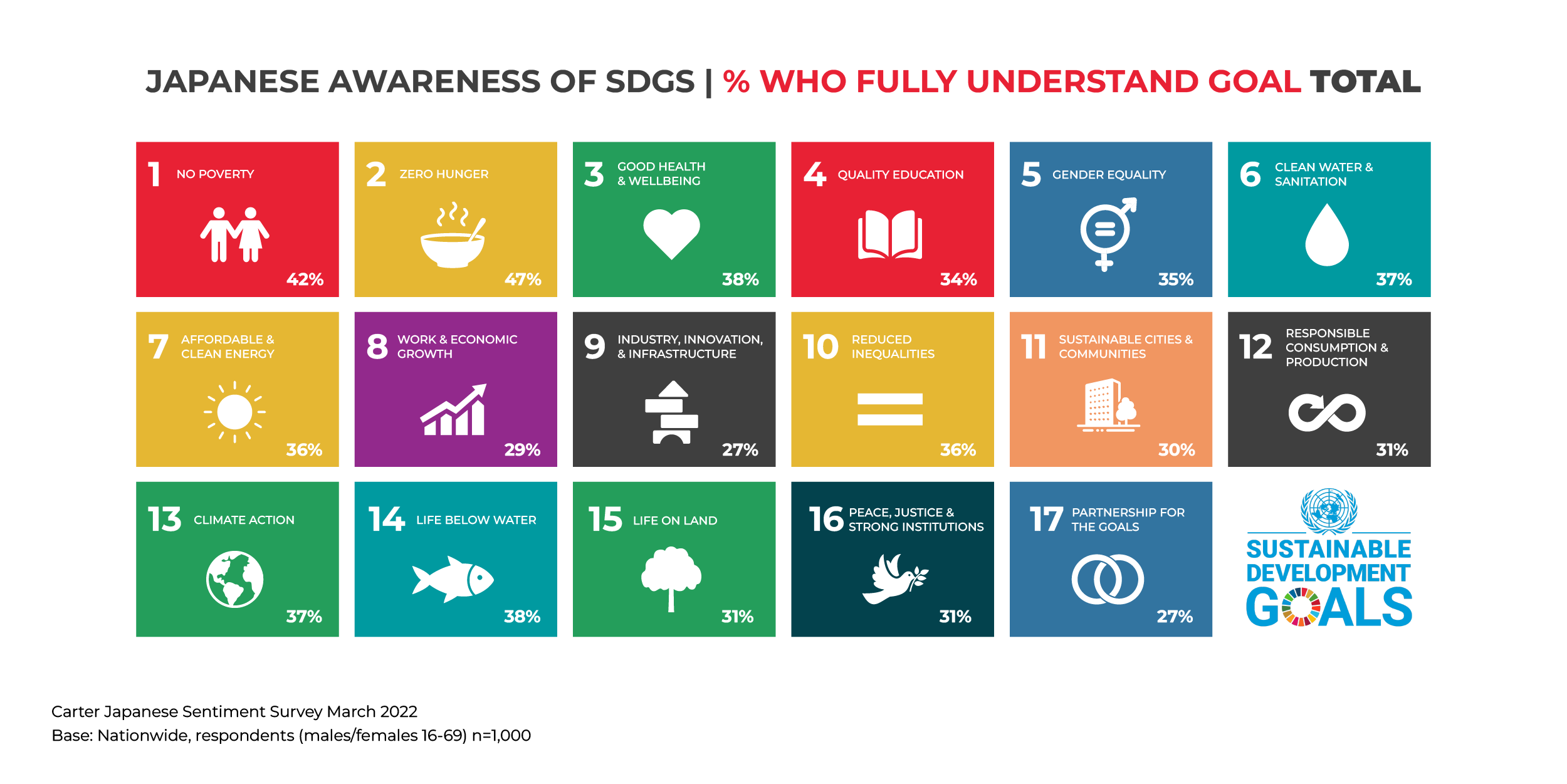
“Zero Hunger” is the best-understood goal
Looking at the individual goals, it is apparent that some goals are more intuitively understood than others.
Of the 17 goals “Zero Hunger” was the best understood with 47% of people stating they fully understand this goal, followed by “No Poverty” at 42%. The least understood goals were “Partnership for The Goals” and “Industry, Innovation and Infrastructure”, with 27% fully understanding.
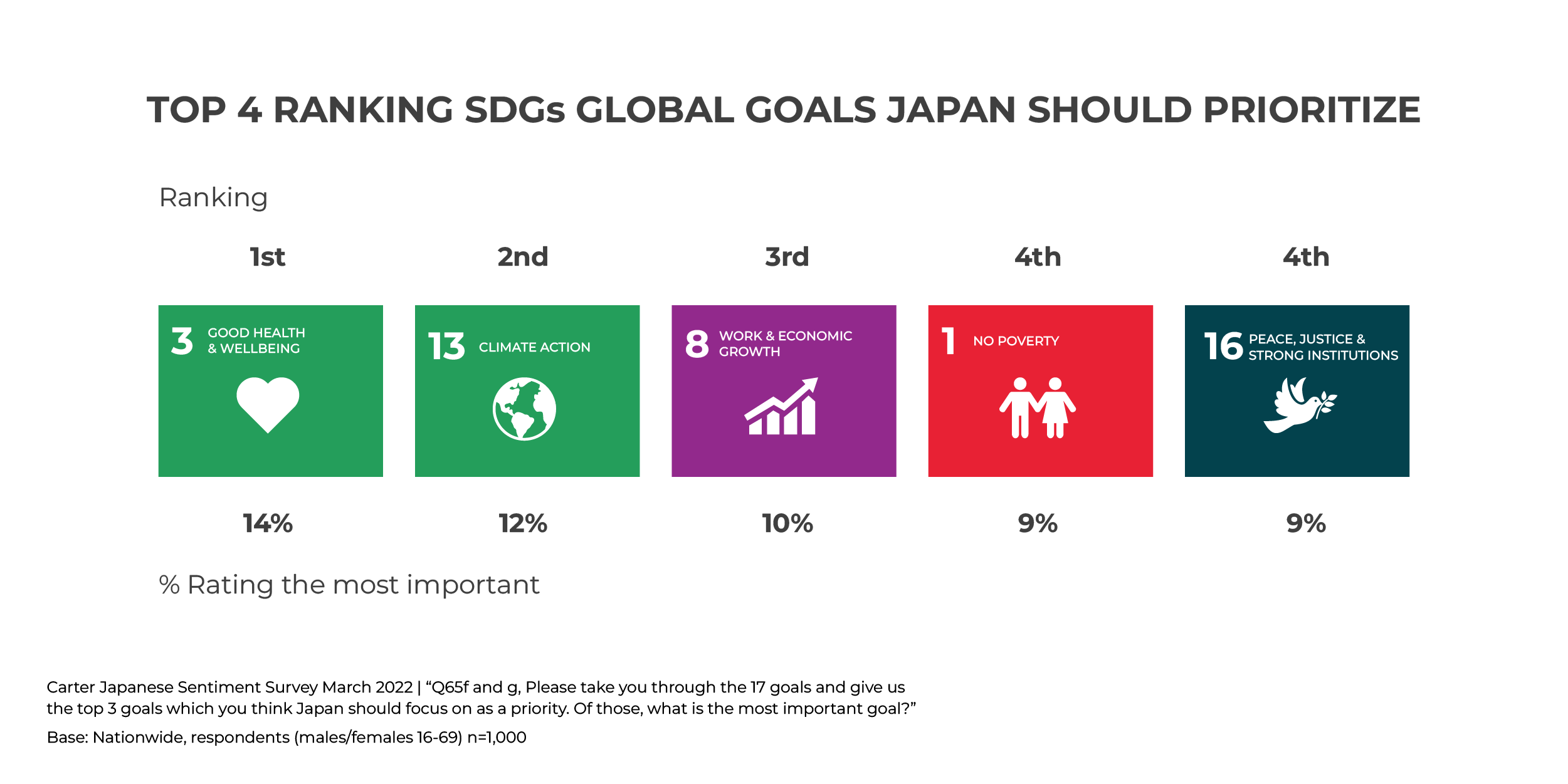
In terms of the areas Japanese feel their country should prioritize, the goal that people thought was the most important to focus on was “Good Health and Wellbeing”, with 14% rating this as the most important goal. This was followed by “Climate Action” at 12% and “Decent Work and Economic Growth” at 10%. “No Poverty” and “Peace Justice and Strong Institutions” are paired at 9%.
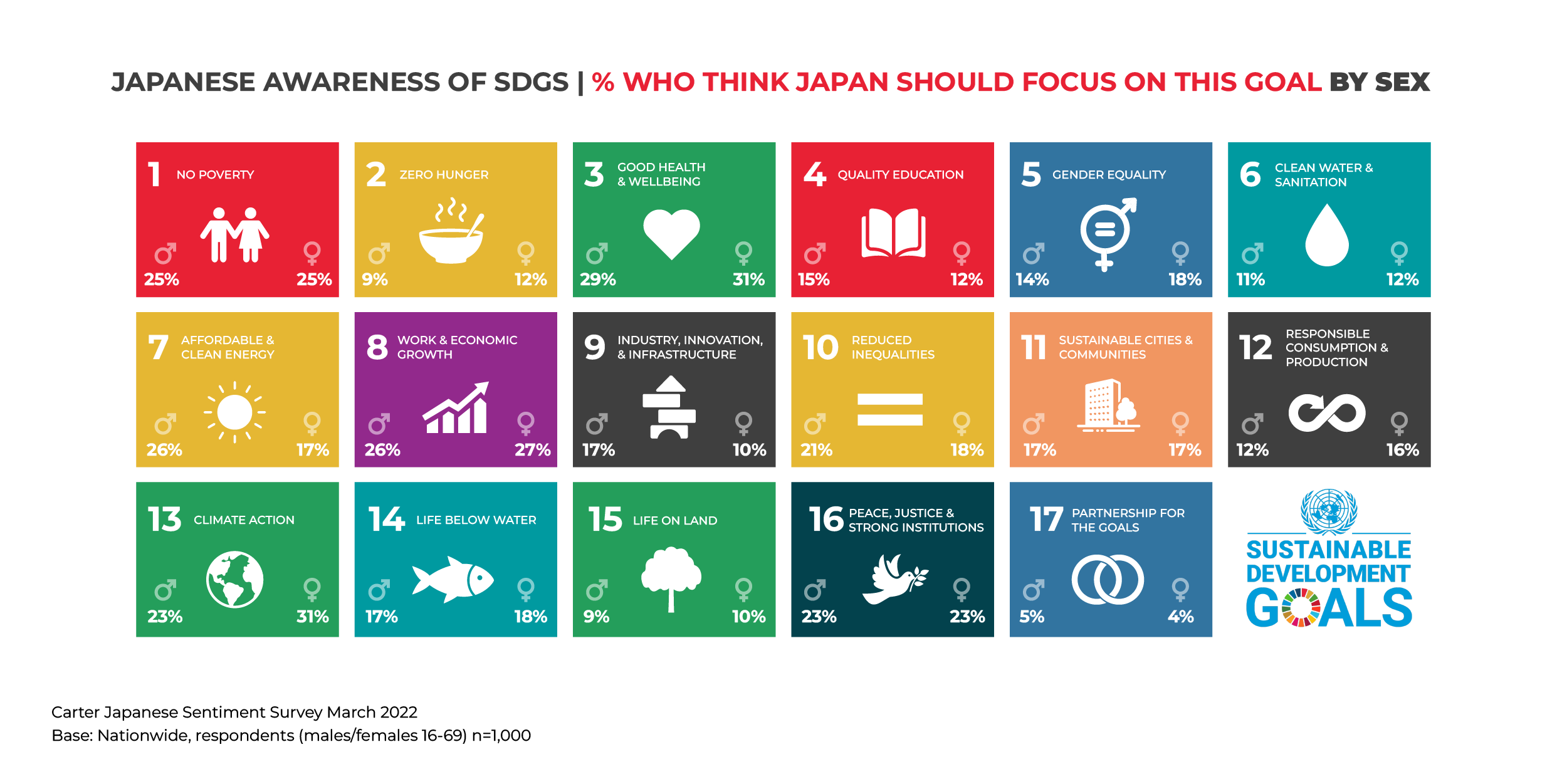
“Climate Action” importance: Men 23% vs. Women 31%
“Affordable and Clean Energy” importance: Men 26% vs. Women 17%
Interestingly the goals thought of as a Japanese priority do not differ much by sex until asked about Climate Action. For this goal, we found that more women than men thought of climate change in japan as a priority. Conversely, more men than women found “Affordable and Clean Energy” a more important goal to focus on. This paints the picture of women desiring more to be done regarding climate in real terms, with men more concerned with price and clean energy use.
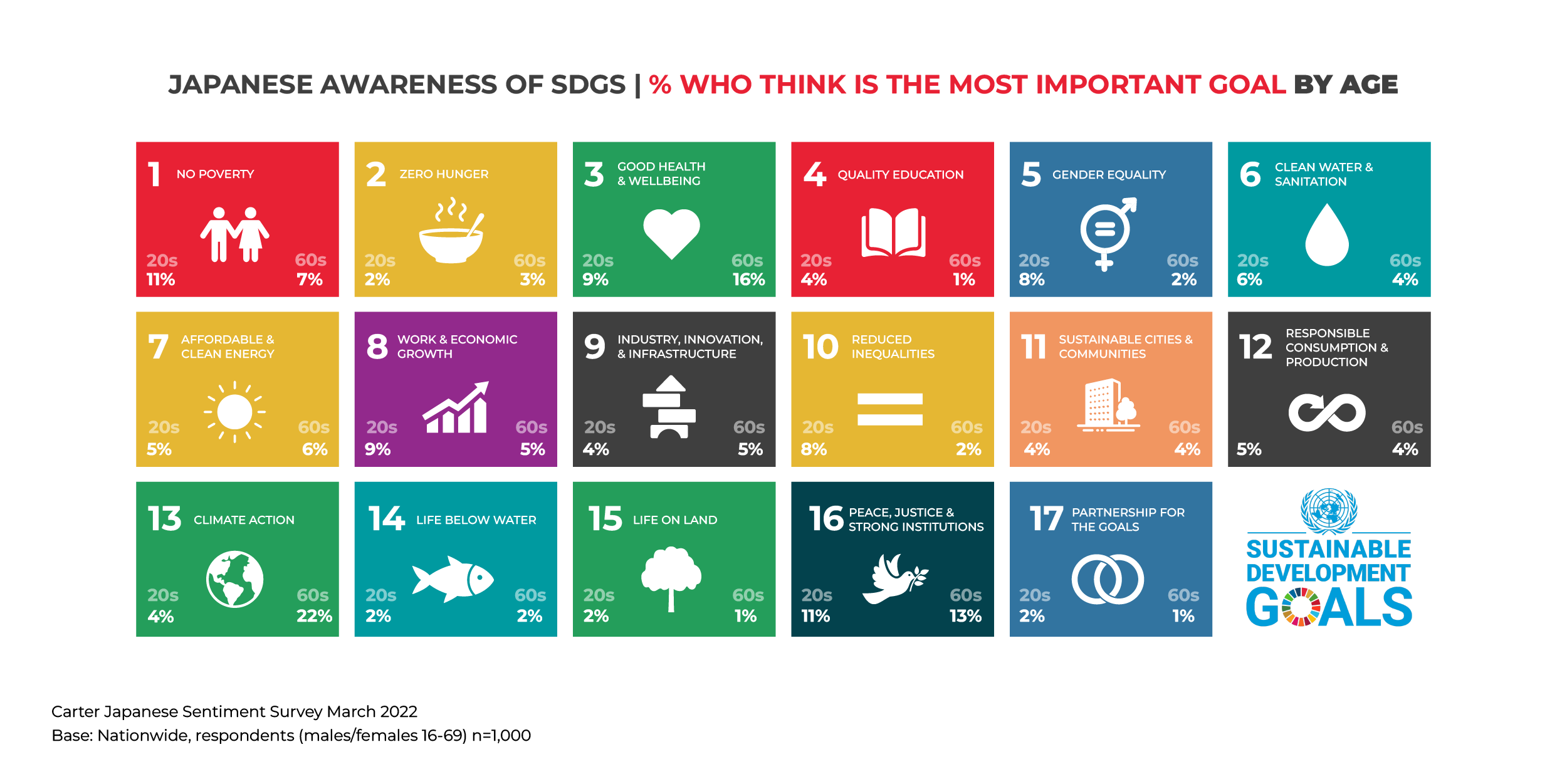
“Climate Action” is the biggest distinguisher between younger and older people
We found that those in their 60s were the ones who cared most about “Climate Action”, with 22% citing this as the most important goal, versus 4% of those in their 20s. This differs from what we see in western countries, where the younger generations tend to be the ones that fly the flag for climate initiatives.
Instead, the most important goal for Japanese twentysomethings was “No Poverty” with 11% choosing this goal.
“Good Health and Wellbeing” is a priority for those in their 60s
It may come as no surprise that the older generation cares more about good health and well-being, with 16% of those in their 60s choosing this as opposed to 9% of those in their 20s. One sustainable development goal the younger and older generations did have in common was Peace, Justice and Strong Institutions.
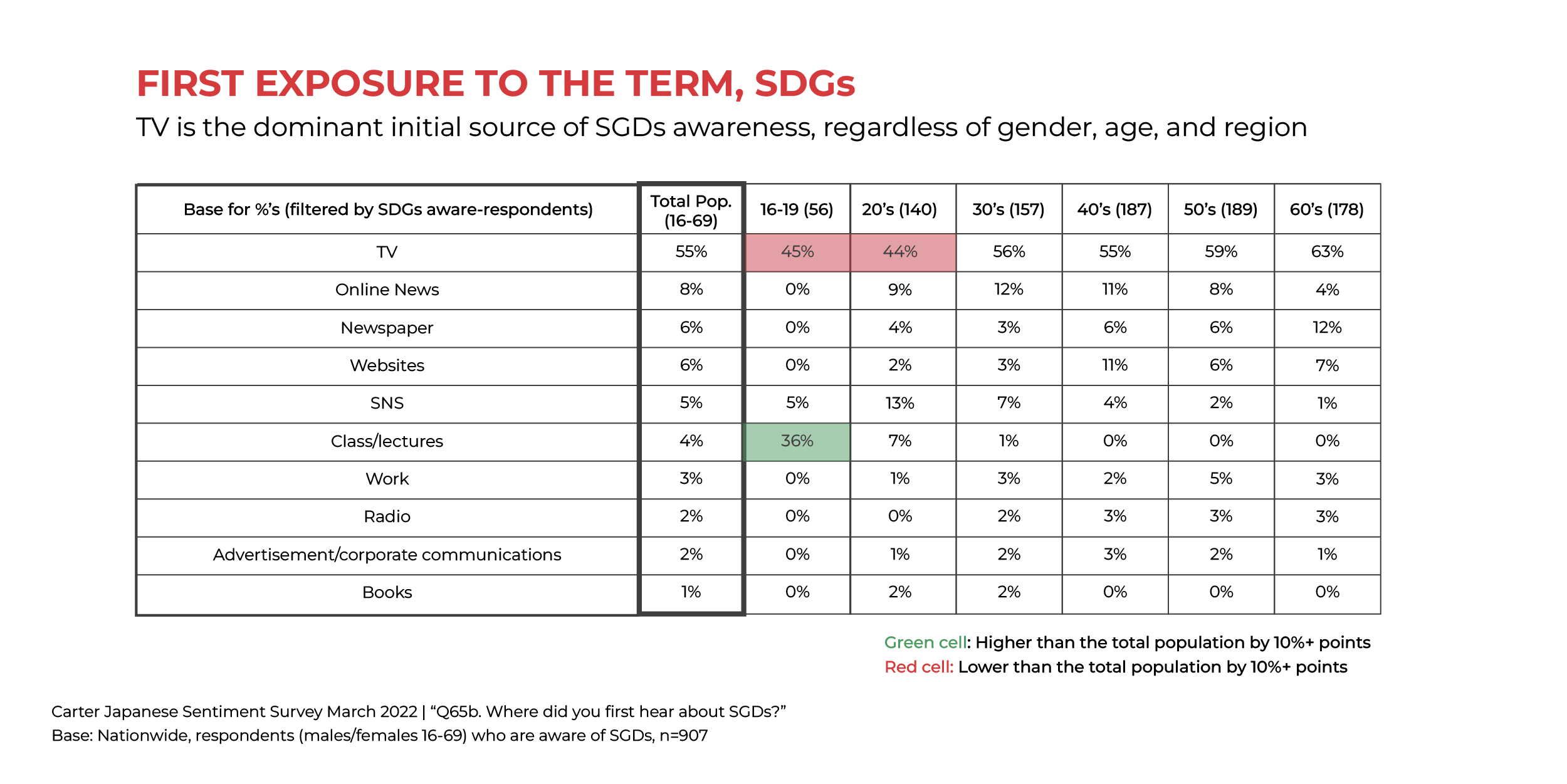
Television leads across all age groups as a source of awareness.
For older people, TV and newspapers (the so-called ‘old’ media) lead as a source of information, while those in their teens are also learning about the SDGs in class.
Overall, it seems there is some way to go in educating the Japanese public about the SDGs, especially among younger people. Older generations and, in some areas, women represent a more receptive constituency.
